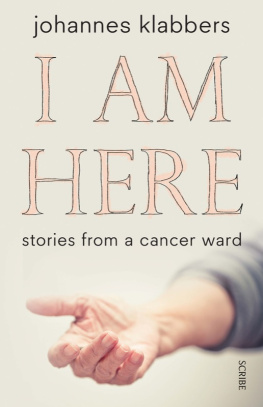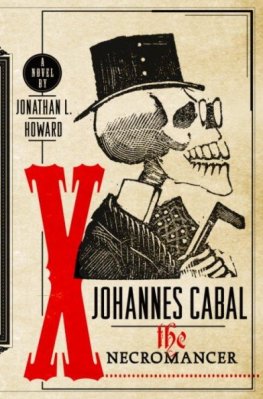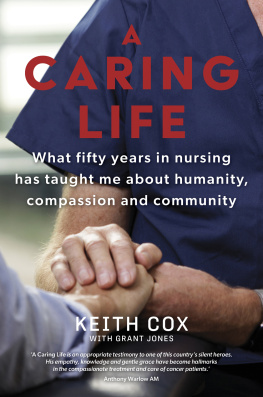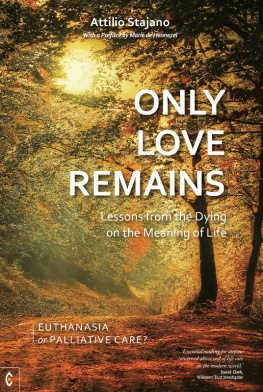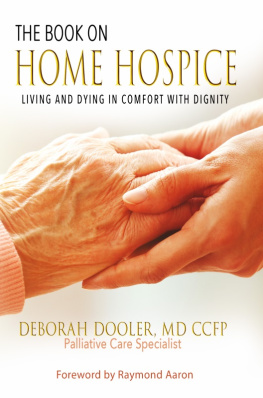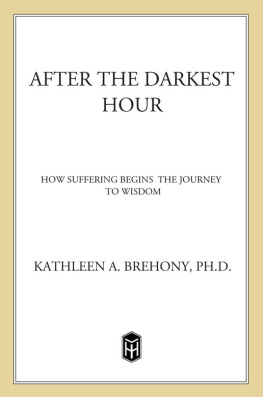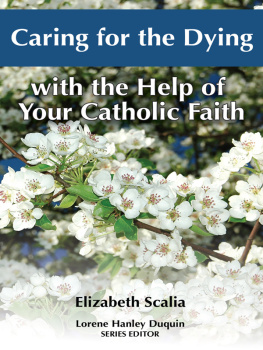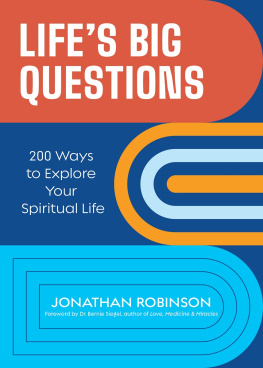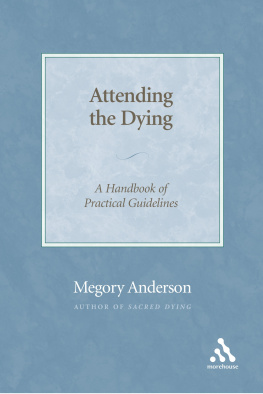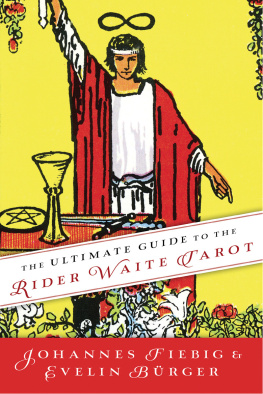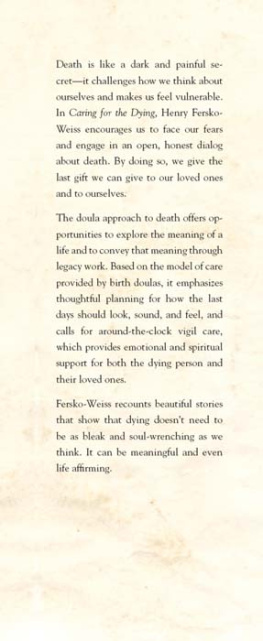
I AM HERE
In London during the heyday of punk, Johannes Klabbers shared the stage with legends like Siouxsie and the Banshees, The Slits, and XTC, before escaping to Australia to do a PhD in art and becoming an academic. He is now a writer and a posthumanist therapist, talking with people about how to have a life and what it means to die and writing his second book, The Art of Dying .
www.johannesk.com
To the memory of E.M.
Scribe Publications
1820 Edward St, Brunswick, Victoria 3056, Australia
2 John St, Clerkenwell, London, WC1N 2ES, United Kingdom
First published by Scribe 2016
Copyright Johannes Klabbers 2016
All rights reserved. Without limiting the rights under copyright reserved above, no part of this publication may be reproduced, stored in or introduced into a retrieval system, or transmitted, in any form or by any means (electronic, mechanical, photocopying, recording or otherwise) without the prior written permission of the publishers of this book.
9781925321470 (AU paperback)
9781925228625 (UK paperback)
9781925307566 (e-book)
CiP records for this title are available from the National Library of Australia and the British Library
scribepublications.com.au
scribepublications.co.uk
Contents
Authors note
When I resigned from the university where I was a tenured academic, I had no idea what I was going to do next. Six months later, I began working full time as an unpaid pastoral-care intern at a major cancer hospital. In essence, the work was being there, talking to the patients, and listening to them if they wanted to talk. I had a Doctorate of Philosophy, a post-graduate teaching qualification, and a Bachelors degree, but I was completely unprepared for the education I was about to receive, and I never worked harder than I did for the three qualifications I gained that year a Basic, an Advanced, and a Post-advanced certificate in Pastoral Care. Each took three months to complete, with two-week breaks in between.
Once Id passed the Basic unit, I was offered some paid pastoral work in the hospital during the breaks and after Id finished my internship, I frequently worked there as a casual pastoral worker when the hospital was short of staff, and during weekends and public holidays. (During most of those three years, I also worked a second job in computer support after hours to pay the rent.)
This book deals mainly with my experiences during that first year as a pastoral-care intern, although, in the writing, I have occasionally drawn on my experiences whilst working in the hospital in those subsequent years. The original idea for the book was to honour the people I encountered in the hospital those who died and those who lived, at least for a while, and those who remain alive. What I would have liked to be able to say was This is not my story, but theirs. But as I was writing this book, I realised that no one can tell someone elses story. You can only tell your own story, and how it connects with other peoples stories.
So this is a memoir: it is a book about how I experienced and remember the events; it does not attempt to provide a factual account. This is the story of how I was touched, challenged, and profoundly moved by my encounters with these people and the many others who did not make it into the book. In telling my own story and how I was changed by that year, I hope to have honoured their memories and perhaps given something back.
I have not named the hospital, and this book has not been endorsed by it. The book does not attempt to reflect the policies of the hospital, or the opinions of its employees. The names and personal details of the patients who I worked with, and their friends and families, have been changed in a genuine attempt to protect their identities, but all the people in the book are real.
The members of staff who appear in this book the nurses and ward clerks, allied health staff, as well as my colleagues in pastoral care are amalgamations or collages, with made-up names. Crucial though these people are in the care of the patients, and much as I respect and admire them, I felt I could be a little bit creative with those characters. All the same, I hope I have shown them appropriate respect.
Although I was enrolled in a Clinical Pastoral Education program, I have chosen to omit most of the mechanics of CPE, of which there is a rich tradition in Australia, the UK, and the US, and which I wished, for a time, to actively contribute to changing by making it more accessible to those with no religious beliefs. I hope this book can do something to help make that possible by demonstrating the richness and importance of a secular pastoral-care practice.
For a long time, Ive held the view that its sensible for people suffering unbearably from an incurable illness to legally request assistance to end their lives, as they can in my motherland and increasingly in other countries. I saw nothing in my three years of working in the hospital to make me think otherwise. I only aired my views on this subject on a couple of occasions in private conversation with one or two colleagues, and not at all with patients. Nor did I reveal that I was doing volunteer work for a right-to-die organisation except to my head of department after finishing my internship. More recently, I worked part time for that organisation and actively advocated for end-of-life choices. I am continuing to think about this issue and how we can make it easier to talk to each other about death and dying. This will be the subject of my second book.
An Agnostic on Trial
Beginnings
I awake to grey skies on my first day as a pastoral-care intern, but my head is clear, and now that I am no longer working at the university I am surprised to find my mood is optimistic. It is difficult to imagine what this day and this week, let alone this year, will hold. But I am not afraid. When you aint got nothing, you aint got nothing to lose , as the song goes.
Pastoral care was not what I had in mind when I resigned my tenure at the university. Not that I had anything in mind, except to return to the real world, and to reinvent myself. I had no idea how I would do that or what I would do. What I did know was that I didnt want to spend my life trying to convince students that in order to make good art it has to be a matter of life and death. I knew that I wanted to spend my time with real human beings as many different human beings as possible and to find out if I could make a real difference in some of those peoples lives. I knew that, at least in theory, students are real human beings, too, but after fifteen years, most of them seemed to me to be processing the material I fed them as mindlessly as the cows in the paddock near the universitys experimental farm. But the cows were more interesting because part of the skin around the abdomen had been replaced with Perspex, so you could observe their digestive systems working.
I have walked to the hospital several times to see how long it will take and to make sure Im not late and that I dont get lost. It takes a little less than an hour. The route takes me past the Melbourne Cricket Ground and through the lush Fitzroy Gardens where Captain Cooks cottage stands. Bought for 800 pounds by an Australian in 1933, it was transported brick by brick from Yorkshire and rebuilt here. Of more interest to me are an Aboriginal scarred tree and a statue of Diana the Huntress and her dogs. She wears a determined look, and not much else. Ah, the Victorians! In her right hand is a bow, whilst the other is pointing into the distance, as if to say Onward!
Voluntarily relinquishing tenure, which is the holy grail for would-be academics the world over, is inconceivable for most people. But there is tenure, and then there is tenure in a small country town in rural Australia five-and-a-half hours drive from Sydney and four-and-a-half from Melbourne. There, tenure is like a soft prison sentence. Every second Thursday, they put two-and-a-half thousand dollars into your bank account, and the idea of that not happening anymore becomes terrifying. It is like an umbilical cord with which you are connected to an evil mother who sucks as much as she can out of you through the same channel that delivers the sweet milk.
Next page
